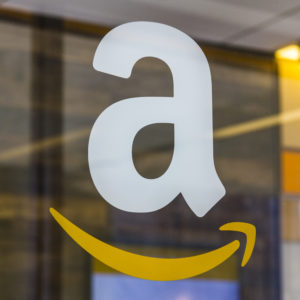Investors are becoming bearish on Big Tech, warning of earnings misses by companies like Facebook and Google as canaries in the coal mine amid growing regulatory scrutiny.
But against all odds, Amazon was able to escape this disappointment, reporting $87 billion in earnings to close 2019 despite heightened scrutiny.
As Amazon continues to smash record after record, at what point do we acknowledge that this reckless pursuit of profits has come at the expense of smaller competitors? If regulators are serious about taking meaningful action in the interest of protecting competition, they are running out of time — and it is time for them to finally draw a line in the sand when it comes to Amazon.
Once the darlings of the American economy, the largest tech companies found themselves under the microscope from regulators in 2019.
The Department of Justice and the Federal Trade Commission were reportedly sharpening their knives when it comes to carving up these companies, while a bipartisan coalition of state attorneys general had launched a sweeping probe into competition concerns from Big Tech.
Yet despite this renewed focus on Big Tech, Amazon has been able to sidestep serious oversight over its platform and practices and keep growing — meaning consumers and small businesses remain at risk.
While other companies have shrunk under the hotter spotlight, Amazon recently surpassed the $1 trillion market valuation mark — meaning if it were a country, Amazon would be richer than all but 16 nations worldwide.
To be clear, big companies are not inherently bad. Large companies can use their economies of scale to create cutting-edge innovation, produce goods in mass and help lift up other smaller businesses. But the benefits of Amazon’s growth simply are not being felt on Main Street.
Take Amazon’s third-party marketplace as an example. Investors have celebrated the company’s decision to make it easier for anyone to sell goods on its platform as powering its unprecedented growth.
Yet reports have emerged of counterfeiters duping
Amazon even slipped a change into its annual investor disclosures that when it comes to the sale of dangerous products by third-party sellers, the company cannot even be bothered to keep a close eye on wares being sold on its platform. No small mom-and-pop shop would be able to defy consumer safety standards with such impunity — only a company of Amazon’s massive market share could.
Amazon’s defenders will claim that the company started as a small bookseller and grew into the giant that it is today through innovation, and challenge other companies to do the same. But it is clear that the playing field is so slanted that smaller competitors have no chance.
Unless regulators finally get serious about taking on Amazon, the company will continue to trample over smaller competitors undeterred and will only continue to grow.
Time is running out to make sure smaller businesses and the largest tech companies are all required to play by the same rules.

